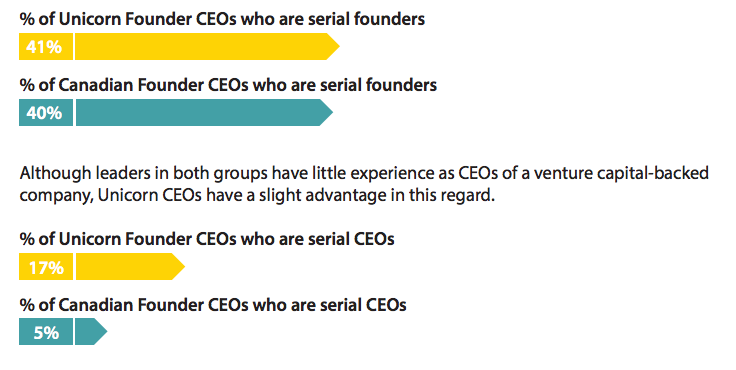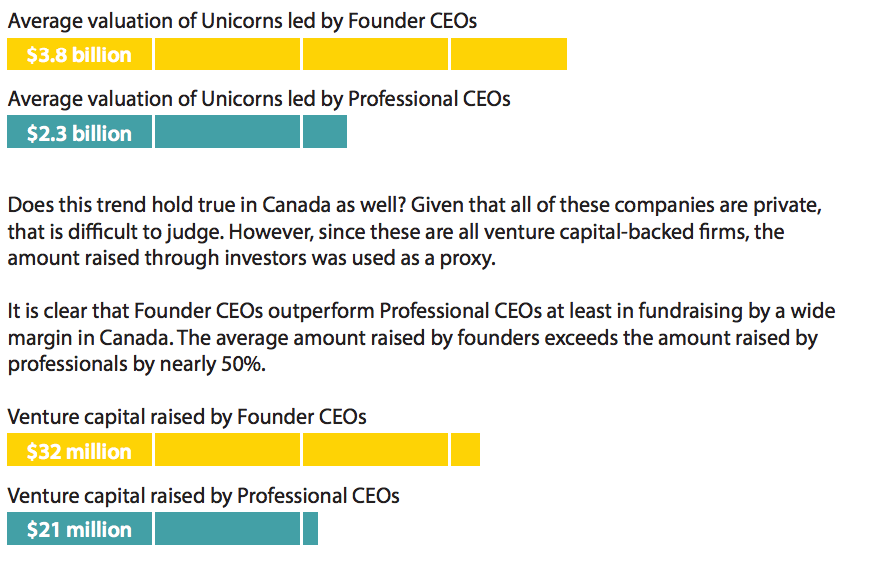Canadians have a lot to brag about when it comes to the country’s startup ecosystem; Kitchener-Waterloo has the second largest startup density only after Silicon Valley, and our governments are often invested in initiatives that boost entrepreneurship.
But a new study from the University of Toronto’s Impact Centre suggests that the troubling Canadian tendency to replace founder CEOs with professional CEOs may be affecting our ability to create unicorns; In Canada, we’re 2.6 times more likely to replace a Founder CEO with a Professional CEO. “Certainly, we have had world-leading companies such as Blackberry and Mitel, and more recently unicorns such as HootSuite and Kik Interactive. But most of our successful startups are sold before they reach world-class size,” said the report. “Overcoming this growth hurdle is crucial to positioning Canadian companies favourably in global markets.”
The study looked at 142 companies out of 152 companies identified by CB Insights as having valuations above $1 billion, and thus accorded unicorn status. The researchers then compared the unicorns with 118 private Canadian companies that received VC funding between 2009 and 2012.
Impact Centre first examined whether Canadian founder CEOs are less experienced than unicorn founder CEOs, and found that Canadian founder CEOs have just as much experience as unicorn founder CEOs.

It also looked at whether the Canadian professional CEOs that often replace founders are less experienced than unicorn CEOs, and actually found that Canadian professional CEOs have more experience starting companies than professional and unicorn CEOs.
The study then compared the average valuation of unicorn companies led by founder CEOs versus professional CEOs, and the result was particularly striking — the average valuation of unicorns led by founder CEOs was $3.8 billion, while professional CEO-led companies had an average of $2.3 billion.

“Why would we be so quick to replace founders when the statistics clearly indicate that they outperform professionals? Determining an answer to this question requires further research,” the report said.
While 82 percent of unicorns are run by founder CEOs, only 53 percent of founders of tech companies retain their place as CEOs in Canada. Overall, the report found that Canadian founders have the right background, experience, and demonstrated ability to raise funds to grow market-leading companies — but Canada’s tendency to replace founder CEOs, who are often visionary leaders, may be a factor in a Canadian company’s reluctance to scale.
The full report can be found here.


